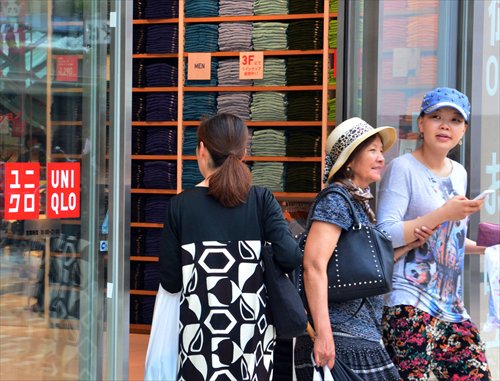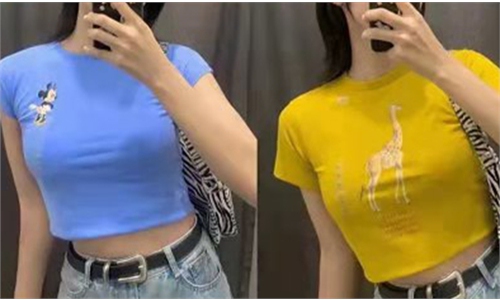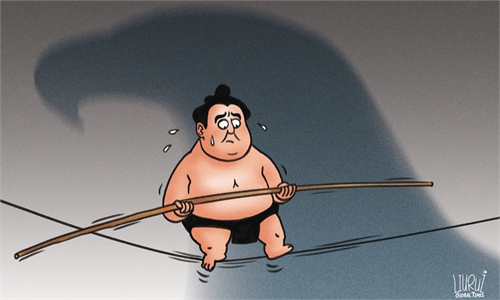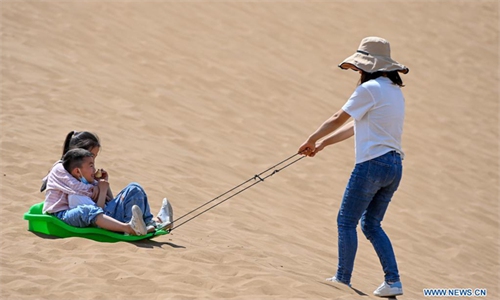
Customers shop at Japan's casual apparel retailer Uniqlo in Tokyo. File photo: AFP
The lack of tourists from China may have partially prompted Japanese casual fashion brand Uniqlo's plan to close and relocate a store in a main shopping area of Osaka next month, tourism industry practitioners said on Tuesday, underscoring rising impact of the COVID-19 pandemic on foreign businesses that rely heavily on Chinese tourists.
In a notice, Uniqlo said that "the store of Uniqlo in Shinsaibashi is scheduled to be closed on August 1. It will be relocated to the same facility of GU and reopened in September."
The area of Shinsaibashi, which used to attract crowds of local people and foreign tourists, has faced a decline in visitors due to the coronavirus.
"Many popular fashion and cosmetics brands opened stores in the shopping area. That pushed rents up pretty high, and some shops just can't afford it anymore because of the coronavirus," Zhang Jian, a tourism industry practitioner in Japan, told the Global Times on Tuesday.
The lack of tourists, especially Chinese tourists, has had a huge impact on Japan's tourism industry, Zhang noted. "The knock-on effect ranged from Japan's air sector and hotels, to shopping to restaurants, and sales of Japanese black cattle."
However, Uniqlo dismissed such claim. In a statement sent to the Global Times on Wednesday, Uniqlo said that the decision to close the store was made due to an expiring lease on the store. "Amid the epidemic, it is true that the number of foreign tourists dropped, not only those from China. But this is not the main reason for closing the store."
According to the Japan National Tourism Organization, around 9.594 million Chinese tourists visited Japan in 2019, accounting for 33 percent of the nation's total number of foreign tourists.
The World Travel & Tourism Council's annual Economic Impact Report on June 11 said the dramatic impact of COVID-19 on Japan's travel and tourism sector wiped out $138 billion from the nation's economy with more than 290,000 jobs lost.
In addition to the lack of foreign visitors, the decline of local consumption power in Japan also hurt shopping areas like Shinsaibashi, as many people prefer to spend on the bare necessities of life during the coronavirus pandemic, Xu Xiaolei, manager of marketing at China's CYTS Tours Holding Co, told the Global Times.
Depending on the speed of China's vaccination program, the country's outbound tourism is expected to resume as early as mid-2022, Xu noted.
However, the change of the Uniqlo store in the popular shopping region is not worrisome, as the brand's operations in Japan and China reported better profits than expected, according to its recently released results.
Another Japan-based clothing and homewares brand - MUJI, owned by Ryohin Keikaku Co - said that its sales and profit in East Asia increased mainly due to a solid performance in China. Sales from stores in the country jumped 110.7 percent year-on-year.
Global Times



